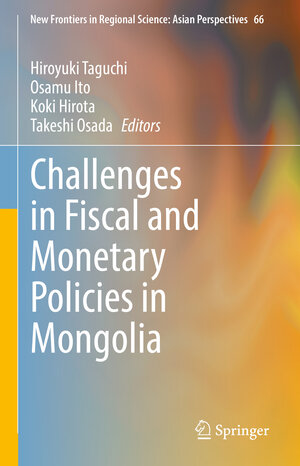
Challenges in Fiscal and Monetary Policies in Mongolia
herausgegeben von Hiroyuki Taguchi, Takeshi Osada, Osamu Ito und Koki HirotaThis book provides quantitative evidence on the issues in fiscal and monetary policies in Mongolia and presents necessary policy recommendations for policymakers and academic circles. Mongolia belongs to a natural resource-based, transition economy and thus has faced the risk of the so-called resource curse—including the “Dutch Disease” and immaturity in market-based systems, particularly in financial markets. Consequently, reformations of resource allocation and policy governance in fiscal and monetary fields have been required. So far, however, there have been only a very limited number of quantitative studies in the Mongolian economy among the vast literature of Asian studies.
This book applies scientific approaches to address fiscal and monetary issues, such as data-oriented and econometric methods (a structural vector auto-regression model, a spatial econometric model, and panel estimation with fixed effects, among others). In this manner, the book enriches empirical evidence in academic literature and also contributes to evidence-based policymaking. All the authors are young leaders of government officials in the Ministry of Finance, Financial Regulatory Commission, and National Statistics Office in Mongolia, who have been trained in academic research methodologies at Saitama University, Japan, on JICA-JDS scholarships. Thus, academic researchers and policymakers will be prominent members of the target audience for this work.




